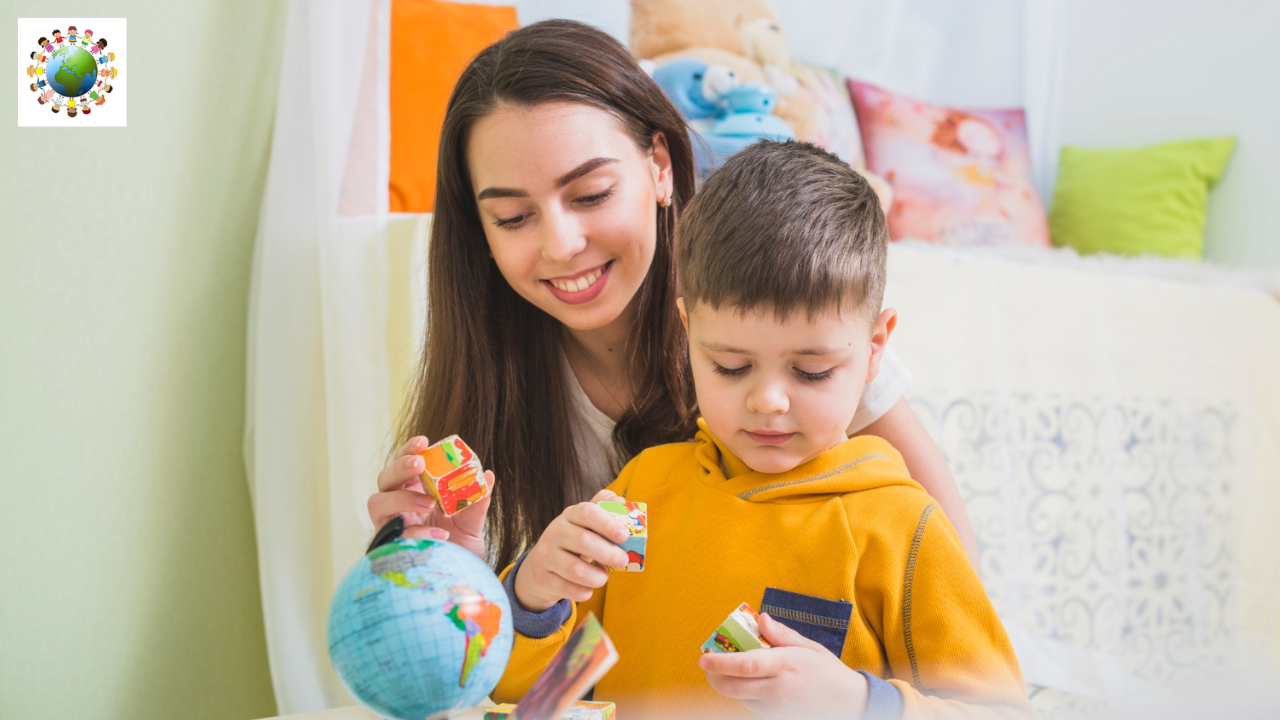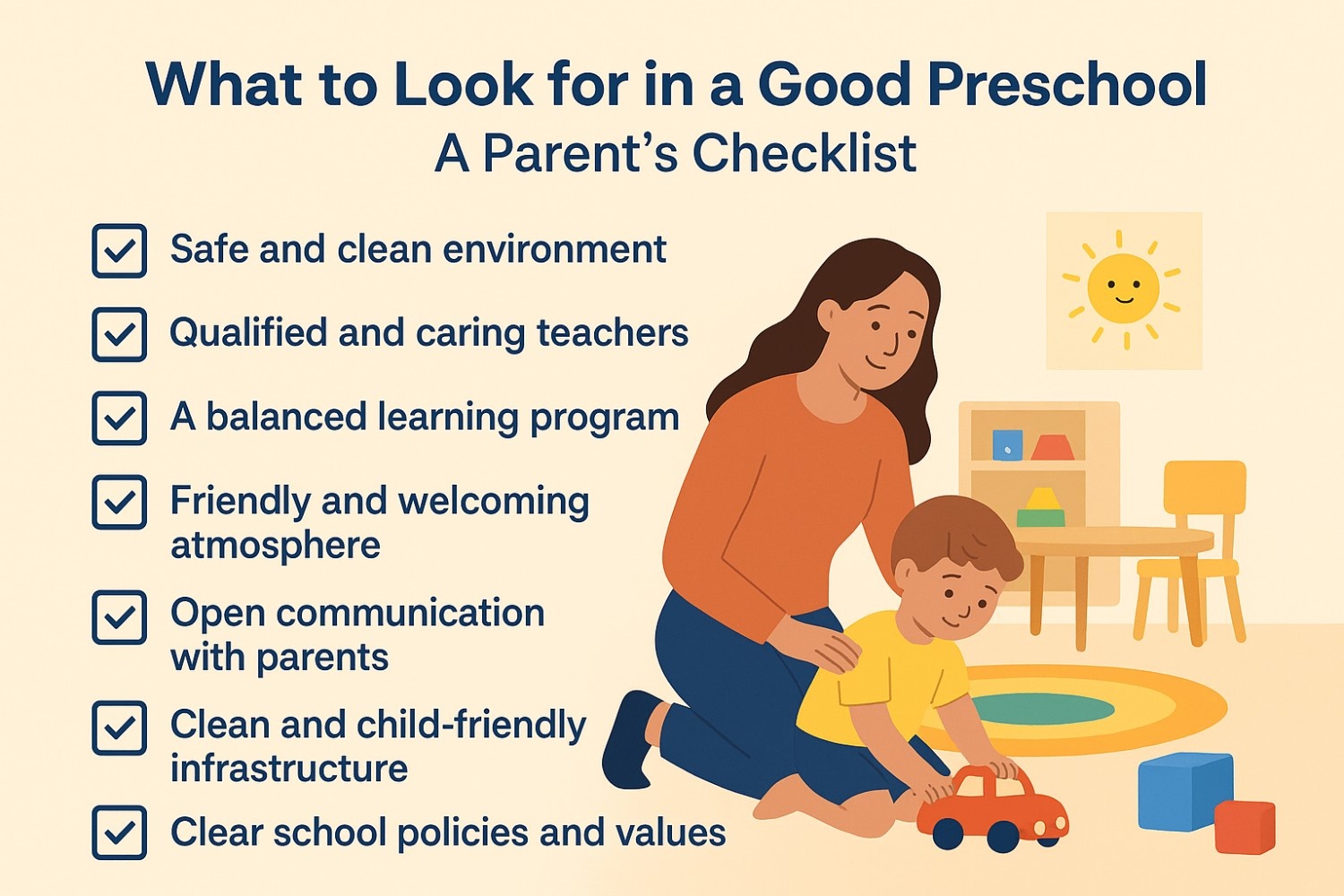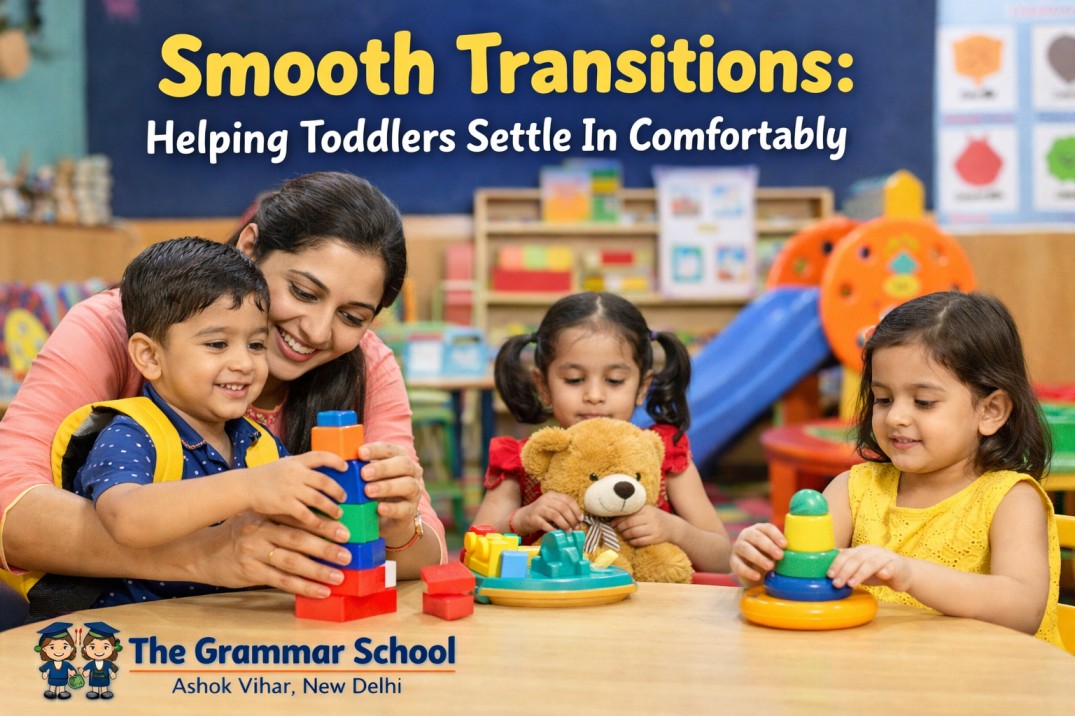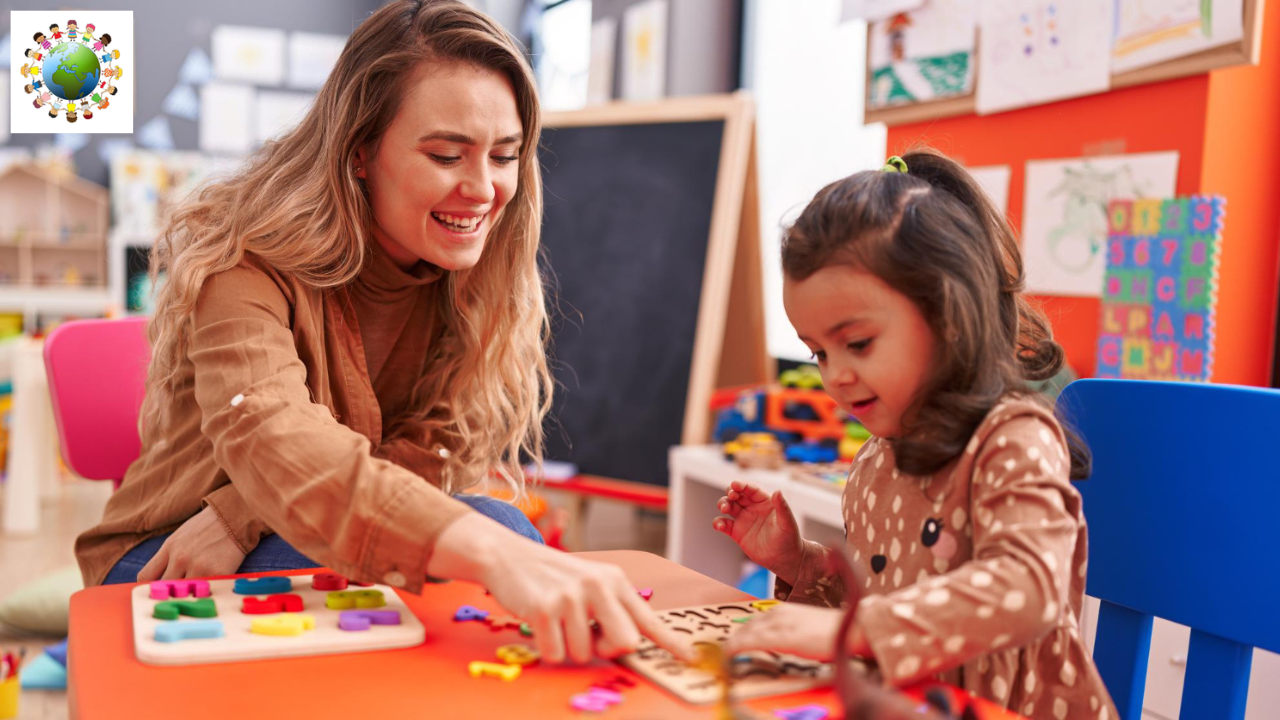Early childhood is a time of big changes. It’s when children start learning how to talk, listen, play, and understand the world around them. What they learn during these years shapes how they grow, think, and feel for the rest of their lives.
That’s why early childhood education matters so much. It’s not just about teaching ABCs or numbers. It’s about helping children build the habits and skills they’ll use in school and beyond like paying attention, asking questions, and working with others.
Parents often ask, “Isn’t it too early to start teaching?” The truth is, children are always learning. Every smile, every story, and every new word adds to how they see and handle life.
By giving your child the right start, you’re setting them up to be curious, confident, and ready to learn. That’s what early education is all about laying the strong foundation for a happy and successful future.
What is Early Childhood Education?
Early childhood education means the learning that happens before a child starts formal school usually from birth to age six. This is the time when a child’s brain grows the fastest. They learn how to talk, think, feel, and interact with others.
It includes simple things like listening to stories, playing with blocks, or painting with fingers. But these small activities build big skills like thinking, speaking, sharing, and solving problems. It’s not just about learning letters or numbers. It’s about helping children feel safe, loved, and ready to explore.
Parents and teachers work together during this stage. A good early education setting helps children feel happy and confident. It gives them the space to ask questions, make mistakes, and try again.
This early learning lays the base for how children do in school later on. Kids who get the right support early are more likely to enjoy learning, do well in studies, and get along with others.
That’s why early childhood education matters, it helps children grow strong in both mind and heart.
The Brain Develops Fastest in Early Years
A child’s brain grows more in the first five years than at any other time in life. This is when the brain builds millions of connections every second. These early years shape how a child learns, feels, and behaves.
Simple things like talking, singing, reading, or playing help the brain grow. When a child hears words, sees colors, or feels different textures, the brain learns how to respond. Even hugs and smiles make a big difference, they teach the brain to feel safe and loved.
During this time, children also learn how to think, focus, and control their emotions. These are skills they’ll use for the rest of their lives. That’s why early childhood education is so important. It gives kids the right start when their brains are growing the most.
If a child gets the right support early, it can lead to better learning, better health, and better choices later on. Parents, teachers, and caregivers all play a big role during this stage.
Helping a young child’s brain grow strong is one of the best gifts we can give. It sets the stage for a happy and healthy future.
Building Blocks of Lifelong Learning
Early childhood education gives kids the tools they need for a lifetime of learning. At this stage, children pick up basic skills like listening, speaking, sharing, and following instructions. These may sound simple, but they form the base for everything they’ll learn later in school and life.
Children also learn how to ask questions, solve small problems, and try new things without fear. These habits help them become curious and confident learners. When kids feel safe and supported, they enjoy learning and that feeling stays with them as they grow.
Good early learning also builds focus and patience. Kids learn how to sit for a task, wait their turn, and work with others. These are all important skills for school and beyond.
Parents and teachers play a big role in shaping these early habits. With the right support, children grow up believing in themselves and knowing that learning is something they can enjoy all their lives.
Social and Emotional Growth
Early childhood education isn’t just about numbers and letters. It also teaches kids how to understand and handle their feelings. They learn how to talk about what makes them happy, sad, or upset. This helps them grow into calm and kind individuals.
In preschool or early learning spaces, children meet others from different homes. They learn how to take turns, share toys, and work in groups. These small actions help build strong social skills that last a lifetime.
They also start to build friendships. Learning how to get along with others, how to say “sorry,” how to ask for help, or how to cheer up a friend, is a big part of growing up.
When teachers and parents support children emotionally, kids feel safe. This safe feeling lets them try new things, ask questions, and keep learning even when it gets hard.
Helping children grow emotionally and socially at an early age gives them confidence and helps them handle everyday life better as they grow older.
School Readiness & Academic Success
Early childhood education gives kids a strong start before they enter formal school. It teaches them basic skills like how to listen, follow directions, sit in a group, and stay on task. These simple habits make learning in a classroom much easier.
Children also start picking up early reading, writing, and number skills. They get familiar with books, sounds, shapes, and patterns. This helps them feel more confident when they begin primary school.
Kids who attend early education programs are usually better prepared for class. They understand how school works and feel more comfortable in a learning space. This early boost often leads to better performance in later years.
When children start strong, they’re more likely to enjoy school and stay curious. They feel proud when they can do things on their own. That small success keeps pushing them forward.
Getting ready for school isn’t only about ABCs and 123s, it’s about building the right habits, gaining confidence, and being excited to learn.
Long-Term Benefits Beyond School
The impact of early childhood education lasts far beyond the classroom. Kids who begin learning early often grow into adults who are more focused, confident, and able to solve problems better.
They usually do well in school, but it doesn’t stop there. They also tend to make better choices in life, manage their emotions, and build strong relationships. These skills help them in jobs, friendships, and even parenting later on.
Children who attend quality early education programs are more likely to finish school, find stable work, and stay away from risky behaviors. They learn how to think for themselves, talk about their feelings, and respect others from a young age.
This early start helps them handle life’s challenges more calmly. It shapes how they see themselves and the world around them.
In short, early learning helps kids become well-rounded adults not just smart, but kind, patient, and responsible too.
Role of Parents in Early Learning
Parents play the most important role in a child’s early learning. From the moment a baby is born, they learn by watching, listening, and copying. Simple things like talking, reading, or singing to your child every day help build strong brain connections.
Even small actions like naming colors, counting toys, or asking questions, can help kids learn faster. These daily interactions also teach kids how to speak clearly, listen well, and think on their own.
Parents also shape how a child feels about learning. When parents show interest in their child’s curiosity, kids feel more confident and eager to try new things. They feel safe and supported, which helps them do better in school later.
Early learning doesn’t only happen in school, it starts at home. That’s why your time, love, and attention matter so much.
By being involved from the start, parents give children the best gift: a strong start in life.
Common Myths About Early Childhood Education
Many people think early childhood education is just playtime. That’s not true. While kids do play, they’re also learning how to think, solve problems, and get along with others.
Another common myth is that learning should only start once a child goes to big school. But the truth is, the brain grows fastest in the early years. What children learn at this stage stays with them for life.
Some believe that young kids are too small to understand new ideas. But children are naturally curious and pick up more than we realize. With the right support, they can learn numbers, letters, and social skills early on.
There’s also a belief that parents don’t need to be involved if the child goes to a preschool. That’s wrong. Learning starts at home, and parents still play the biggest role.
Understanding these myths can help parents make better choices. Early education isn’t about pushing kids, it’s about giving them a strong and happy start.
Conclusion
Early childhood education builds the base for everything that comes later. It shapes how children think, feel, and connect with others. When kids get the right start, they’re more ready for school, better at handling emotions, and more confident in learning.
Parents play a big part in this journey. Simple things like reading a book, talking, or playing together, can make a big difference. It’s not about expensive tools or long hours. It’s about care, attention, and a space where children feel safe to grow.
That’s why choosing the Best Play School in Ashok Vihar, Delhi can make all the difference. The right environment in the early years helps children learn better, feel supported, and grow in the right direction.
The early years are not just the beginning, they’re the most important part. Giving children strong support at this stage helps them now and far into the future. Investing time and love early on leads to a lifetime of learning.
“A strong start today sets your child on a confident, capable path for life.”




